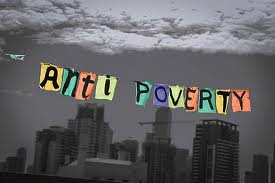According to the Harper government, poverty isn’t an election issue because poverty doesn’t really exist in Canada.
On March 17, 2010, during a forum on poverty, Conservative candidate Chris Alexander (MP Ajax-Pickering), said that Canada had wiped out “third world” levels of poverty.
That’s funny since, according to the Canadian Centre for Policy Alternatives , 1.5 million Canadians remain unemployed, nearly one in ten people live in poverty, and according to one recent survey one-third of Canadians can’t afford basic expenses.
Alexander — when pressured — did later clarify his comments stating he makes a definition between, “World Bank definition of poverty and the Canadian definition of poverty.”
Assembly of First Nations National Chief Shawn Atleo has called out Alexander to retract the claim that no “third world” poverty exists in Canada, stating his comments reflect an “underlying, deep misunderstanding about the real issues” and that these types of comments blind Canadians to the real economic and social pressures that affect First Nations communities.
For example, as of February 28, 2011, 116 First Nations communities across Canada were under a drinking water advisory. Let me remind you that access to clean drinking water is a human right.
Speaking on the definition of poverty, Atleo said he has travelled to poverty-stricken places around the world and he did not see much difference between a child hauling water with a bucket in Africa and “a child doing the same in a northern First Nations community.”
The CCPA and the Assembly of First Nations are not alone in trying to put poverty on the public agenda this election.
Canadians Without Poverty (CWP), thinks, “it is shameful that in a wealthy country such as Canada, poverty is rampant, and has been on the rise. What makes this worse is that there are been repeated calls to adopt a federal poverty strategy by individuals, civil society, and government groups (2009 Senate Report, and 2010 HUMA report both call for a plan to eliminate poverty), and yet the Conservative government barely acknowledged the growing need.”
Regarding real solutions to poverty and not political semantic debates, the CCPA’s Alternative Federal Budget (AFB), in contrast, “makes poverty reduction one of its central objectives.
“The need for a federal plan is clear: In 2008 (the latest year for which we have statistics), the national poverty rate was 9.4% (up from 9.2% in 2007). That’s over three million Canadians, about 600,000 of whom are children (and in First Nations families, one in four children lives in poverty). The 2008 numbers also show the number of elderly people living below the poverty line spiked by 25%, the first major increase in decades.”
The AFB proposed the following key targets:
— Reduce Canada’s poverty rate by 25% within five years, and by 75% within a decade.
— In two years, ensure every person in Canada has an income that reaches at least 75% of the poverty line.
— In two years, ensure no one has to sleep outside, and end all homelessness within ten years by ensuring all people who are homeless have good quality, appropriate housing.
Now, if only the politicians would listen.



